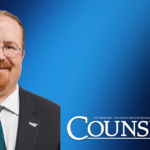Share
In these transformative times, we are witnessing a revolutionary shift in the health care landscape. More than ever before, individuals are being empowered to take charge of their health and well-being through more accessible modalities and client-centered tools. New technologies in the behavioral health field are making game-changing advancements in client care and satisfaction. These technologies have emerged as vital tools in connecting patients with competent care providers regardless of barriers and geography.
Tele-counseling has allowed patients/clients to consult counseling professionals remotely through video conferencing, making it both convenient and cost-effective. Moreover, platforms have proven to be invaluable during challenging times, such as natural disasters and pandemics, ensuring patients have continuous care and support. While many platforms allow patients to connect to their providers remotely, very few offer the highest levels of security, research-backed analytics, and an easy-to-use web-based interface.
One issue with tele-counseling is the synchronicity between the counselor and the client. It is important to be able to hear and see the individual in real-time. Slow internet could alter the counselor’s response to the client or vice versa. At the very least, the absence of real-time feedback or technical issues could be frustrating for the client. As technical challenges associated with this method of care continue to be resolved through improvements in connectivity, particularly in rural communities, clients may still encounter challenges related to consumer protection. Many may find themselves in relatively unprotected environments when it comes to supervision, or the lack thereof, in tele-counseling.
There is a dark side to tele-counseling. The lack of ability to have real-time supervision could lead to inappropriate relationships. The counselor could lie about the sessions and document that they have seen the client when they haven’t. Other concerns would be people either dropping in on the session or breaking confidentiality. There could be inappropriate material in the counselor’s background where the counselor could reveal too much about the one’s private life or offend the client with political or religious material. Plainly put, there is a lack of supervision in telehealth that could set the industry back in years of improvements made in ethical behavior and anti-fraud efforts.
Ironically, just as innovation has given rise to new problems, it is also offering innovative solutions for them. Advanced session analysis tools are now available, designed to support health care providers while delivering top-tier services to patients. Not only do they enhance consumer protection, but through their innovative technology, health care professionals can also gain valuable insights into the effectiveness of sessions and client engagement both in individual and group settings. These new platforms include detailed analyses of patient-provider interactions, assessing aspects like rapport and speech authenticity.
The incorporation of artificial intelligence into these platforms goes beyond simple session transcriptions. Advancements in these products provide significant information on treatment outcomes, session themes, and the generation of automated clinical notes. All these elements contribute to continuous improvement in the quality of care provided and the efficiency of clinical services delivered.
Of course, these tools are provided in SOC 2 compliant web-based applications that provide the highest level of protection of client data. As an industry leader in the nation’s largest state, I am often invited to the “ground floor” of product development. I had the honor of working recently with Keel Mind on a platform specifically tailored to offer the following: real-time, confidential supervision of tele-counseling; continuous session feedback for practitioners; and a transcription ability that actually writes session notes intelligently (without cutting and pasting).
The team at Keel Digital Solutions understands the importance of competent care and is committed to empowering care providers with the tools and support they need to make a positive impact on their patients’ lives. As the virtual health delivery industry continues to grow, their dedication to excellence positions them as a frontrunner in the field. At Counselor, we are excited to witness this transformation and support innovations like those from Keel Digital Solutions that are shaping the future of health care. Together, let’s embrace the opportunities that virtual health offers and continue to strive for excellence in health care services.
About Me
Pete Nielsen is the President & Chief Executive Officer for the California Consortium of Addiction Programs and Professionals (CCAPP), CCAPP Credentialing, CCAPP Education Institute, and the National Behavioral Health Association of Providers (NBHAP). CCAPP is the largest statewide consortium of addiction programs and professionals, and the only one representing all modalities of substance use disorder treatment programs. NBHAP is the leading and unifying voice of addiction-focused treatment programs nationally. Mr. Nielsen has worked in the substance use disorders field for 20 years. In addition to association management, he brings to the table experience as an interventionist, family recovery specialist, counselor, administrator, and educator, with positions including campus director, academic dean, and instructor.
Mr. Nielsen is the secretary of the International Certification and Reciprocity Consortium and the publisher for Counselor magazine. He is a nationally known speaker and writer published in numerous industry-specific magazines. Mr. Nielsen holds a Master of Science in Counseling Psychology and a Bachelor of Science in Business Management.












 Counselor Magazine is the official publication of the California Association of Addiction Programs and Professionals (CCAPP). Counselor offers online continuing education, article archives, subscription deals, and article submission guidelines. It has been serving the addiction field for more than thirty years.
Counselor Magazine is the official publication of the California Association of Addiction Programs and Professionals (CCAPP). Counselor offers online continuing education, article archives, subscription deals, and article submission guidelines. It has been serving the addiction field for more than thirty years.